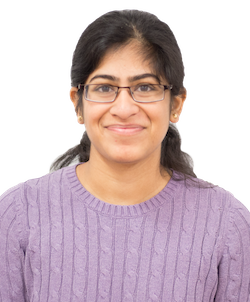
The factors that separate us start affecting us earlier than imagined
 There are many social determinants of education: money, access to good teachers, extracurricular activities, school infrastructure. From the first day a child enters school, there are factors that abruptly put them ahead or behind students of the same age bracket. These discrepancies exponentially increase as the years progress, and by high school graduation, there’s a clear difference between who has privilege and who doesn’t.
There are many social determinants of education: money, access to good teachers, extracurricular activities, school infrastructure. From the first day a child enters school, there are factors that abruptly put them ahead or behind students of the same age bracket. These discrepancies exponentially increase as the years progress, and by high school graduation, there’s a clear difference between who has privilege and who doesn’t.
I grew up in a comfortable middle-class family in Cupertino, Calif. Many of my peers had more in terms of money. They could afford expensive, long-term, one-on-one tutoring, private SAT coaching classes and costly extracurricular activities like tennis and piano lessons. It isn’t that I went without — during my junior year of high school, my parents spent a considerable amount of cash on tutoring and SAT coaching classes, not to mention violin and vocal lessons since seventh grade. When college applications came around, some of my classmates spent close to $10,000 on private counsellors to help them with their essays. I relied on the generous and affectionate help of family and friends. Some of my peers benefited from their wealth and ended up in old-money institutions like Yale and Wellesley. Most of them, however, ended up in the UCs and CSUs. And that’s when our bubbles simultaneously burst.
When telling one of my friends in my first year at UC Davis about an experience in my SAT class, she was stunned and told me that her school didn’t offer an SAT class. I realized that not only had she never heard of such a concept, but she also didn’t have a single acquaintance who took such a class, either. Another time, my friend shared that he used to have to go to Back-to-School Night with his parents because they didn’t know enough English to understand what his teachers were saying — and there I was mocking my parents for not pronouncing words like “espresso” correctly in Starbucks. By the end of the year, I felt like a spoiled brat. The 13 years of schooling I had plus immeasurable support, both financially and emotionally, put me well ahead of many of my peers. And I was so ashamed when I realized that what I thought wasn’t sufficient was more than many of my classmates could ever imagine, let alone ask for.
If one of my classmates wants to call me out for having privilege, I will totally, unreservedly own up to it. What I will not do is point back at them and explain why they have privilege, too. And that’s what too many people are doing. A common argument made is that low-income, minority, and female students get “special” help. It is not “special” to grow up in neighborhoods that are rough or go to schools that have poor resources. It is not “special” to not have your parents around when you need them or to need to work two or three jobs to pay for college. And it certainly isn’t special when primary education doesn’t prepare you well enough for university education. That’s the opposite of special.
This isn’t to say people of privilege don’t have problems. I have friends who lost a parent or were primary caregivers to ailing ones. I had classmates who battled cancer, lost their homes to foreclosure or were abused by relatives. I’d like to think the system wouldn’t look at them as affluent, but as humans who have suffered because of their circumstances. You can’t tell these things by looking at a person — which is why we should stop declaring who’s better off and who isn’t.
So far, UC Davis has provided me a first-class education, plenty of resources to succeed and lots of wonderful and generous mentors. But I also recognize the reason I was able to hit the ground running was because of the privilege I was given growing up. There are certain issues that will never affect me — and for no personal fault of theirs, some of my peers will be victim to those same issues. That realization has deeply humbled me. If anything, the breadth of diversity at UC Davis has made me realize the importance of counting my blessings. And I have become a better person because of it.
Written by: Samvardhini Sridharan — smsridharan@ucdavis.edu
Disclaimer: The views and opinions expressed by individual columnists belong to the columnists alone and do not necessarily indicate the views and opinions held by The California Aggie.



